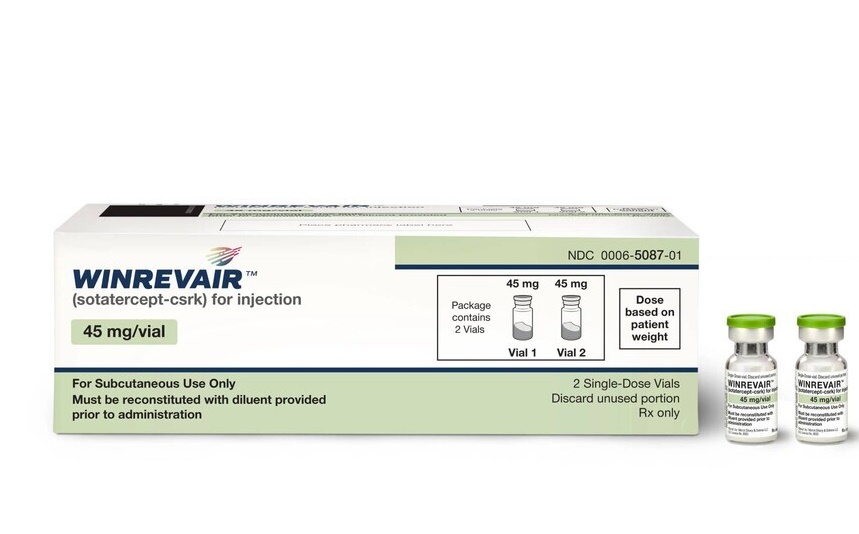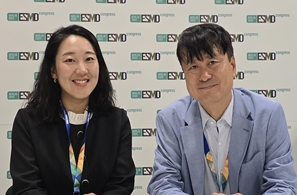- New pulmonary hypertension drugs are competing for approval
- by Moon, sung-ho | translator Hong, Ji Yeon | Aug 11, 2025 06:03am
It's anticipated that they will establish a new market alongside the currently reimbursed treatments.

Pulmonary hypertension is a rare, severe, intractable disease where the walls of the pulmonary arterioles abnormally thicken and narrow, causing pressure to rise. As the disease progresses, symptoms like shortness of breath, chest pain, and fainting appear, severely limiting all aspects of daily life. Additionally, the increased pressure in the right ventricle due to the narrowed pulmonary arteries gradually weakens the function of the right side of the heart, leading to a high risk of sudden death.
First, MSD Korea's Winrevair is an 'Activin Signaling Inhibitor (ASI), the first-in-class (as of July 2025)' to be approved in the field of pulmonary hypertension. It is a new treatment mechanism that has emerged after 20 years. Its mechanism directly addresses the fundamental cause of the disease by blocking the excessive proliferative signals of the protein complex 'activin,' which causes cell proliferation within pulmonary artery blood vessels, and by restoring the balance with anti-proliferative signals that inhibit cell growth, thereby inducing reverse remodeling to normalize the deformed vascular structure.
MFDS approved Winrevair for use in combination with existing treatments to improve the exercise capacity of adult patients (18 years or older) with pulmonary hypertension (WHO Group I) who are in WHO Functional Class II-III.
The three existing treatments are endothelin receptor antagonists (ERA), PDE-5 inhibitors (PDE-5i), and prostacyclin analogues (PCA). With the addition of this new mechanism, the Activin Signaling Inhibitor, which differs from existing treatments, has further broadened the options for pulmonary hypertension patients.
The STELLAR clinical trial, which served as the basis for approval, evaluated the efficacy and safety of Winrevair in 323 adult patients with pulmonary hypertension in WHO-FC II or III. During the 24-week study period, patients received either Winrevair or a placebo in combination with their existing treatment once every three weeks.
Winrevair increased the 6-minute walk distance by 40.8m compared to placebo at the 24-week mark (95% CI, 27.5-54.1; P<0.001) and reduced the risk of clinical worsening or death by 84% (HR 0.16, 95% CI, 0.08-0.35).
It also confirmed significant improvements compared to the placebo in eight secondary efficacy endpoints, including the WHO-FC, pulmonary vascular resistance (PVR), and the heart failure biomarker NT-proBNP levels.
Immediately after the approval of Winrevair, MFDS also approved Janssen Korea's oral pulmonary hypertension treatment, Opsynvi. Specifically, MFDS approved Opsynvi for 'long-term treatment of adult patients with pulmonary hypertension (WHO Group I) who are in WHO Functional Class II-III.'
This approval came one year after the U.S. Food and Drug Administration (FDA) approved Opsynvi in March of last year.
Opsynvi is a combination of the PDE-5i Cialis and the ERA Adcirca, making it the first drug approved as a combination of these mechanisms. PDE-5i has a mechanism that reduces pulmonary artery pressure, while ERA blocks the action of endothelin-1 (ET-1) to promote vasodilation.
The efficacy of Opsynvi was proven in the Phase 3 A DUE study. The trial compared the efficacy and safety of the Opsynvi arm with the monotherapy arms of either Opsumit or Cialis.
After tracking patients for 24 months, Opsynvi reduced pulmonary vascular resistance (PVR), the primary endpoint, by up to 29% compared to the Cialis or Opsumit monotherapy arms.
As a result, more non-reimbursed but clinically available treatment options have become available in the domestic treatment market, following Bayer Korea's pulmonary hypertension treatment 'Adempas (riociguat),' which had been used on a non-reimbursed basis for 10 years until June.
For Winrevair, it has been recognized for its innovativeness and designated as the 24th drug under the MFDS Global Innovative Products on Fast Track (GIFT) in 2024. It has also been selected as a target for the second concurrent approval-evaluation-negotiation pilot program, which may lead to rapid reimbursement.
Wook-Jin Chung, President of the Korean Pulmonary Hypertension Society (Professor of Cardiology at Gachon University Gil Medical Center), stated, "Pulmonary hypertension is a disease that makes even normal breathing difficult and is difficult to cure, causing physical and mental distress to patients." Chung added, "Winrevair, a new mechanism treatment that normalizes deformed pulmonary vascular structures, is also presented as an option that can be used in early treatment stages in updated global clinical guidelines based on the latest evidence. This approval for patients with pulmonary hypertension in Korea has widened the range of treatment options."
-

- 0
댓글 운영방식은
댓글은 실명게재와 익명게재 방식이 있으며, 실명은 이름과 아이디가 노출됩니다. 익명은 필명으로 등록 가능하며, 대댓글은 익명으로 등록 가능합니다.
댓글 노출방식은
댓글 명예자문위원(팜-코니언-필기모양 아이콘)으로 위촉된 데일리팜 회원의 댓글은 ‘게시판형 보기’와 ’펼쳐보기형’ 리스트에서 항상 최상단에 노출됩니다. 새로운 댓글을 올리는 일반회원은 ‘게시판형’과 ‘펼쳐보기형’ 모두 팜코니언 회원이 쓴 댓글의 하단에 실시간 노출됩니다.
댓글의 삭제 기준은
다음의 경우 사전 통보없이 삭제하고 아이디 이용정지 또는 영구 가입제한이 될 수도 있습니다.
-
저작권·인격권 등 타인의 권리를 침해하는 경우
상용 프로그램의 등록과 게재, 배포를 안내하는 게시물
타인 또는 제3자의 저작권 및 기타 권리를 침해한 내용을 담은 게시물
-
근거 없는 비방·명예를 훼손하는 게시물
특정 이용자 및 개인에 대한 인신 공격적인 내용의 글 및 직접적인 욕설이 사용된 경우
특정 지역 및 종교간의 감정대립을 조장하는 내용
사실 확인이 안된 소문을 유포 시키는 경우
욕설과 비어, 속어를 담은 내용
정당법 및 공직선거법, 관계 법령에 저촉되는 경우(선관위 요청 시 즉시 삭제)
특정 지역이나 단체를 비하하는 경우
특정인의 명예를 훼손하여 해당인이 삭제를 요청하는 경우
특정인의 개인정보(주민등록번호, 전화, 상세주소 등)를 무단으로 게시하는 경우
타인의 ID 혹은 닉네임을 도용하는 경우
-
게시판 특성상 제한되는 내용
서비스 주제와 맞지 않는 내용의 글을 게재한 경우
동일 내용의 연속 게재 및 여러 기사에 중복 게재한 경우
부분적으로 변경하여 반복 게재하는 경우도 포함
제목과 관련 없는 내용의 게시물, 제목과 본문이 무관한 경우
돈벌기 및 직·간접 상업적 목적의 내용이 포함된 게시물
게시물 읽기 유도 등을 위해 내용과 무관한 제목을 사용한 경우
-
수사기관 등의 공식적인 요청이 있는 경우
-
기타사항
각 서비스의 필요성에 따라 미리 공지한 경우
기타 법률에 저촉되는 정보 게재를 목적으로 할 경우
기타 원만한 운영을 위해 운영자가 필요하다고 판단되는 내용
-
사실 관계 확인 후 삭제
저작권자로부터 허락받지 않은 내용을 무단 게재, 복제, 배포하는 경우
타인의 초상권을 침해하거나 개인정보를 유출하는 경우
당사에 제공한 이용자의 정보가 허위인 경우 (타인의 ID, 비밀번호 도용 등)
※이상의 내용중 일부 사항에 적용될 경우 이용약관 및 관련 법률에 의해 제재를 받으실 수도 있으며, 민·형사상 처벌을 받을 수도 있습니다.
※위에 명시되지 않은 내용이더라도 불법적인 내용으로 판단되거나 데일리팜 서비스에 바람직하지 않다고 판단되는 경우는 선 조치 이후 본 관리 기준을 수정 공시하겠습니다.
※기타 문의 사항은 데일리팜 운영자에게 연락주십시오. 메일 주소는 dailypharm@dailypharm.com입니다.
- [Op-Ed] Patients, no time left for 'new drug comb therapies'
- Special Contribution | Eo, Yun-Ho









